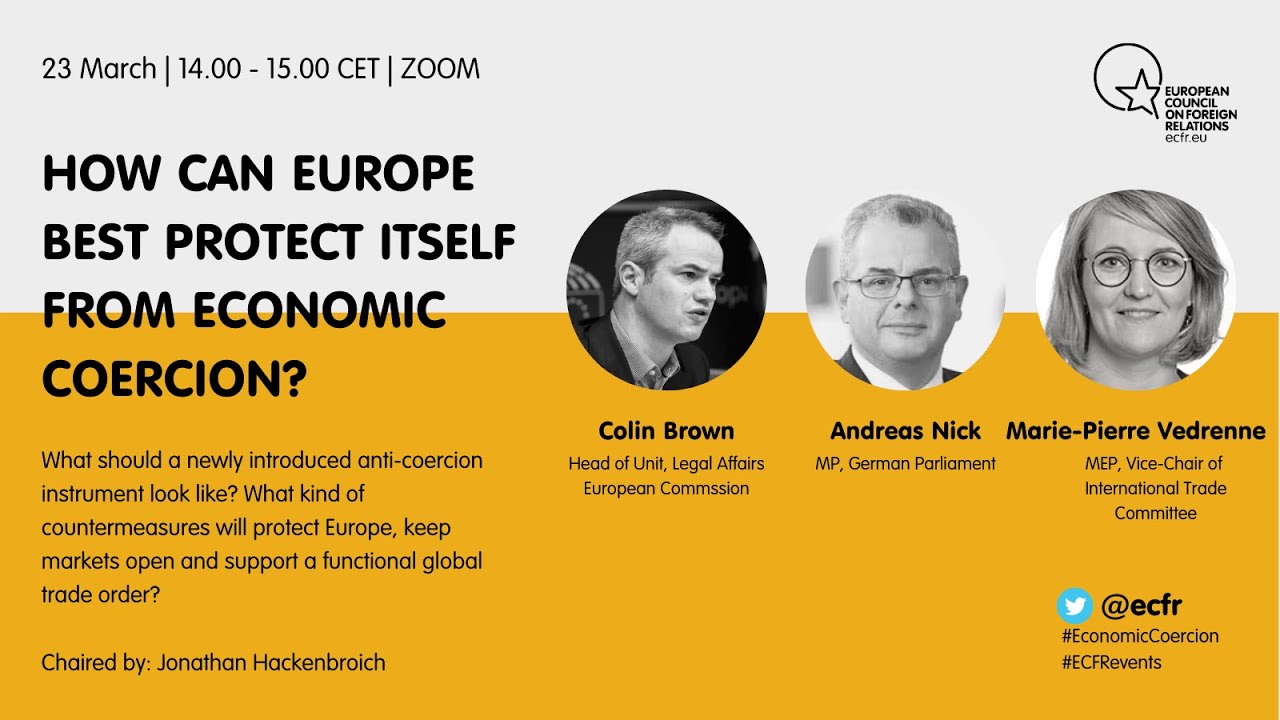Anti-Coercion Instrument: How can Europe best protect itself from economic coercion?
What kind of countermeasures will protect Europe, keep markets open and support a functional global trade order?
Guests
- Colin Brown, Head of Unit, Legal Affairs/Dispute settlement (trade, sustainable development and investment), European Commission
- Dr Andreas Nick, MP, German Parliament & Head of German Delegation to Parliamentary Assembly of the Council of Europe
- Marie-Pierre Vedrenne, MEP; Vice-Chair of International Trade Committee, European Parliament
Chaired by
Jonathan Hackenbroich, Head of Task Force for Strengthening Europe against Economic Coercion, ECFR
The European Council on Foreign Relations is delighted to invite you to our webinar on how Europe can strengthen itself against economic coercion.
Powerful countries revert to economic blackmail to change European foreign, economic, or financial policy. China has threatened Germany and Sweden with dire economic consequences over excluding Huawei from their 5G networks. Russia is looking into expanding its sanction toolkit. Turkey’s President Recep Erdogan called for boycotting French products over a speech by Emmanuel Macron. Under Donald Trump, the US used various measures of economic coercion, even directly against allies. Now, Europe needs to rebuild strong transatlantic relations especially around economic statecraft.
In Defending Europe’s Economic Sovereignty: new ways to resist economic coercion, Jonathan Hackenbroich and others proposed a set of measures that could help Europeans equip themselves with the tools to resist economic coercion, including a European Collective Defence Instrument.
The European Commission is now working on its own anti-coercion instrument. What should a newly introduced anti-coercion instrument look like? What kind of countermeasures will protect Europe, keep markets open and support a functional global trade order? We are very much looking forward to discussing these questions.
The event will be on the record and in English.

